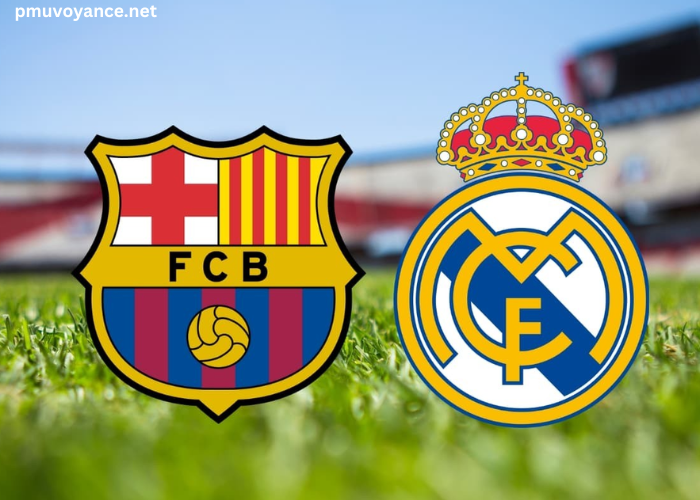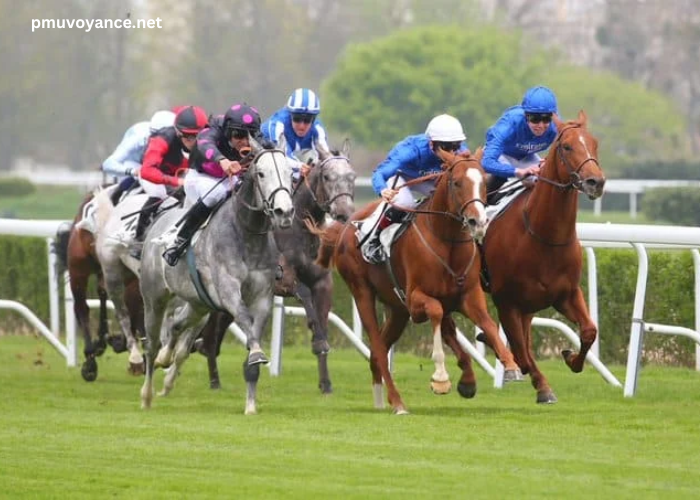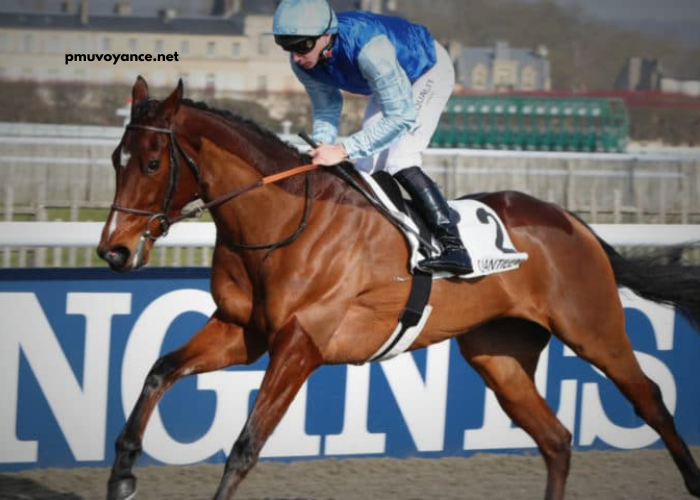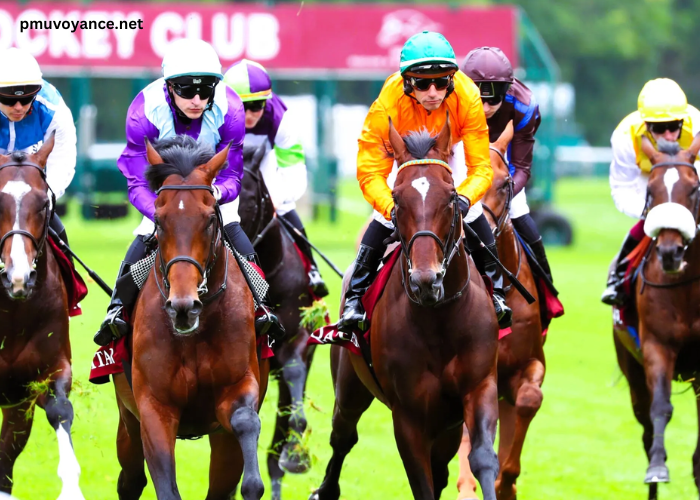The rivalry between Barcelone – Real Madrid is one of the most storied and intense in the world of sports. Known as “El Clásico,” this iconic matchup transcends mere competition; it embodies a rich history filled with memorable moments, legendary players, and cultural significance. The matches between these two Spanish giants have captivated fans globally, showcasing not just their footballing prowess but also the deep-rooted passions that fuel their supporters. From thrilling goals to nail-biting finishes, each encounter is more than just a game; it’s an event that unites and divides, creating a fervor that echoes beyond the pitch.
At the heart of this rivalry lies a history that intertwines politics, culture, and identity. The fierce competition reflects the larger narrative of regional pride, with FC Barcelona representing Catalonia and Real Madrid symbolizing Spanish nationalism. This backdrop adds layers of emotion to their clashes, making each match a spectacle that resonates deeply with fans. Over the years, the encounters have produced unforgettable moments—whether it’s a last-minute winner, a controversial refereeing decision, or a display of sheer skill by a superstar.
As we delve deeper into the dynamics of Barcelone – Real Madrid, we will explore the historical context of their rivalry, the impact of key players, and the significance of their meetings in both domestic and international competitions. We will also discuss the influence of the coaches, the evolution of tactics, and the passionate fan bases that make every match a high-stakes affair. Understanding these aspects will enhance our appreciation of one of football’s greatest rivalries.
What is the Historical Context of Barcelone – Real Madrid?
The rivalry between Barcelone – Real Madrid dates back over a century, rooted in deep cultural and political significance. Established in 1899, FC Barcelona was founded by a group of Swiss, Catalan, and Spanish players, and from its inception, the club embraced the identity of Catalonia. In contrast, Real Madrid, established in 1902, became the symbol of Spanish nationalism, particularly during the dictatorship of Francisco Franco in the mid-20th century. This historical context laid the groundwork for a rivalry that would evolve into one of the fiercest in sports.
The political landscape of Spain during the Franco regime further fueled tensions between the two clubs. Franco’s regime favored Real Madrid, often seen as a tool for promoting Spanish nationalism. Barcelona, on the other hand, became a bastion of Catalan pride and identity. Matches between Barcelone – Real Madrid during this period were not merely athletic contests; they were symbolic battles for cultural identity. The struggles faced by Barcelona resonated with their fans, making victories over Madrid particularly sweet and significant.
Over the decades, the rivalry has grown beyond the political implications. Legendary matches have defined eras, with iconic players making their marks on the encounters. From Alfredo Di Stéfano and Ferenc Puskás for Madrid to Johan Cruyff and Lionel Messi for Barcelona, these footballing greats have shaped the narrative of Barcelone – Real Madrid through their performances and legacies. The matches have become moments of footballing artistry, showcasing not just skill but also the emotions tied to each club’s identity.
The significance of Barcelone – Real Madrid extends to the fanbases as well. The passionate supporters of both clubs create an electric atmosphere during matches, with stadiums packed and voices raised in fervor. The sense of rivalry is palpable, turning each encounter into a spectacle that attracts millions of viewers worldwide. As the teams take to the pitch, they do so not just representing their clubs but embodying the hopes, dreams, and cultural identities of their supporters.
How Have Key Players Influenced the Rivalry of Barcelone – Real Madrid?
Key players have played a monumental role in shaping the narrative of Barcelone – Real Madrid, leaving indelible marks on the rivalry that continue to resonate with fans. The individual brilliance of superstars often becomes the focal point of these encounters, turning ordinary matches into legendary clashes.
Lionel Messi, perhaps the most iconic figure in this rivalry, has made a lasting impact on Barcelone – Real Madrid through his extraordinary talent and record-breaking performances. His ability to score crucial goals and create memorable moments has often tilted the balance in favor of Barcelona. Messi’s iconic dribbling, visionary passing, and penchant for delivering in high-stakes situations have endeared him to fans while making him a formidable opponent for Madrid. His numerous match-winning displays against Real Madrid, including memorable hat-tricks, have elevated the stature of this rivalry.
Conversely, Real Madrid has had its share of legends, including Cristiano Ronaldo, whose presence redefined the dynamics of Barcelone – Real Madrid. Ronaldo’s rivalry with Messi became a defining feature of the contemporary era, as the two superstars pushed each other to unprecedented heights. His remarkable goal-scoring ability and fierce competitiveness brought a new level of intensity to the matches. The sight of Ronaldo celebrating a goal against Barcelona became a cherished memory for Madridistas, symbolizing their dominance in pivotal moments.
Beyond Messi and Ronaldo, other players have also made significant contributions to the rivalry. Players like Zinedine Zidane, Ronaldinho, and more recently, Vinícius Júnior and Frenkie de Jong have brought their unique styles and flair to the encounters, showcasing the evolving nature of football and the rivalry. Each match features fresh talent, ensuring that the stories of Barcelone – Real Madrid continue to be written with every generation.
The rivalry’s impact extends beyond the pitch, as these players often serve as symbols of their respective clubs’ identities. Fans connect with their heroes, creating a narrative that intertwines football with emotions, aspirations, and cultural pride. Each player’s legacy within Barcelone – Real Madrid is not just measured by statistics, but also by the moments they create, making them integral to the larger story of this historic rivalry.
What Tactical Evolutions Have Occurred in Barcelone – Real Madrid Matches?
The tactical evolution of Barcelone – Real Madrid matches reflects broader changes in football philosophy and strategy over the years. As both clubs have experienced shifts in coaching styles and player roles, the tactical approaches during their encounters have adapted accordingly, resulting in captivating chess matches on the pitch.
Historically, FC Barcelona has been known for its possession-based style, famously epitomized by Johan Cruyff and later by Pep Guardiola. The emphasis on tiki-taka—short passing and movement—allowed Barcelona to control matches against Real Madrid, often dictating the tempo of the game. During the height of this approach, matches were characterized by Barcelona dominating possession, utilizing their midfield prowess to stifle Madrid’s attacking threats.
On the flip side, Real Madrid has traditionally employed a counter-attacking style that maximizes the pace and skill of its players. Under managers like José Mourinho and Zinedine Zidane, Madrid often sat deep, inviting pressure and then launching quick transitions to exploit spaces left by the opposition. This tactic proved effective, especially during periods when Madrid was blessed with pacey forwards like Ronaldo and Bale, who thrived on counter-attacks.
In recent years, the tactical battle has become even more nuanced. Managers such as Ronald Koeman and Carlo Ancelotti have introduced different formations and strategies, leading to more balanced encounters. The 4-3-3 formation, favored by both clubs, emphasizes width and attacking prowess while allowing for defensive solidity. The tactical flexibility of coaches has led to intriguing matchups, where each side’s adjustments and adaptations become critical factors in determining the outcome.
Moreover, the role of pressing and defensive organization has gained prominence in Barcelone – Real Madrid matches. As football evolves, both teams have adapted to modern tactics, incorporating high-pressing styles to disrupt the opposition’s build-up play. The intensity of pressing has made the encounters more frenetic, often leading to quick turnovers and unpredictable outcomes.
In summary, the tactical evolutions in Barcelone – Real Madrid matches reflect the changing landscape of football. With shifts in philosophies, formations, and strategies, each encounter becomes a fascinating spectacle that showcases not only individual talent but also the intricacies of team tactics and the chess-like nature of high-level football.
How Do Fan Cultures Shape the Atmosphere of Barcelone – Real Madrid Matches?
The fan cultures surrounding Barcelone – Real Madrid play a pivotal role in shaping the atmosphere of their matches, creating an electric environment that transcends the game itself. The passionate and vocal supporters of both clubs contribute to a spectacle that is as much about emotion and identity as it is about football.
FC Barcelona’s fan base, known as “culers,” takes immense pride in their Catalan identity. The club’s motto, “Més que un club” (More than a club), reflects the deep-rooted connection between the team and the Catalan people. This sentiment is palpable during matches, where the stands are filled with banners, flags, and songs that celebrate not only the team but also Catalonia’s culture and history. The unity among supporters creates an atmosphere of belonging and pride, making the matches against Real Madrid even more significant.
In contrast, Real Madrid’s supporters, often referred to as “madridistas,” bring their own fervor and tradition to the rivalry. The club’s reputation as a symbol of Spanish pride resonates deeply within their fan base. The Santiago Bernabéu Stadium, with its iconic architecture and rich history, becomes a fortress during matches against Barcelona. The energy generated by madridistas, fueled by a long-standing tradition of success, elevates the stakes of Barcelone – Real Madrid matches, creating an atmosphere charged with anticipation.
The buildup to these encounters often begins days or even weeks in advance, with fans engaging in spirited discussions, debates, and even friendly rivalries in their communities. Social media platforms buzz with excitement as supporters share their predictions, analyses, and hopes for the match. This collective anticipation enhances the atmosphere, making it an event that captivates not just local fans but global audiences.
Once the match day arrives, the stadiums become a cauldron of sound and color. Chants resonate throughout, echoing the shared passion of thousands of supporters. The sight of coordinated displays, such as tifos or banners, showcases the creativity and unity of the fan cultures, transforming the stadium into a vibrant tapestry of colors. This visual spectacle amplifies the emotional weight of the rivalry, enhancing the experience for players and spectators alike.
The post-match reactions from fans also play a crucial role in shaping the narrative of Barcelone – Real Madrid. Celebrations and frustrations are shared widely, with fans expressing their emotions through various channels. This connection among supporters, whether in victory or defeat, reinforces the sense of community and belonging that defines the culture surrounding these encounters.
What Are the Most Memorable Matches in the History of Barcelone – Real Madrid?
The history of Barcelone – Real Madrid is dotted with unforgettable matches that have become part of football folklore. Each encounter has contributed to the rich tapestry of this rivalry, leaving lasting memories etched in the minds of fans and players alike.
One of the most iconic matches took place on April 2, 2007, when Barcelona triumphed 3-3 at the Bernabéu in a thrilling encounter. The match featured a sensational display from both teams, with Ronaldinho scoring two stunning goals and a late equalizer from Messi. This match not only showcased the attacking brilliance of Barcelona but also highlighted the resilience of both teams in a battle that had everything: drama, skill, and unforgettable moments.
Another historic clash occurred during the 2010-2011 season in the UEFA Champions League semi-final. The first leg at the Bernabéu ended in a tense 2-0 victory for Barcelona, with goals from Pedro and Messi. The return leg at Camp Nou saw a nail-biting 1-1 draw, which secured Barcelona’s place in the final. This two-legged affair epitomized the high stakes and pressure associated with Barcelone – Real Madrid, as both teams demonstrated their tactical acumen and mental strength on the grand stage.
One cannot discuss memorable matches without mentioning the famous 5-0 victory for Barcelona on November 29, 2010. Under Pep Guardiola, Barcelona delivered a masterclass performance, dominating Real Madrid in every aspect of the game. The match is often remembered for its exceptional team play and the sheer brilliance of players like Messi, Xavi, and Iniesta. This result was a defining moment in the rivalry, showcasing Barcelona’s dominance during that period and cementing Guardiola’s legacy as one of the great managers in football history.
In more recent years, the 2019-2020 season saw an electrifying match where Barcelona won 3-0 at the Camp Nou. The encounter featured goals from Antoine Griezmann and a brace from Lionel Messi, further solidifying Messi’s status as the all-time leading scorer in Barcelone – Real Madrid matches. The intensity of the game and the quality of the football displayed made it a memorable moment for both clubs’ supporters.
These matches represent just a fraction of the countless memorable encounters that have defined the rivalry. Each game carries its own narrative, contributing to the ongoing saga of Barcelone – Real Madrid and ensuring that the clash remains one of the most anticipated events in the football calendar.
How Do the Coaches Influence the Outcome of Barcelone – Real Madrid?
The impact of coaches on the outcome of Barcelone – Real Madrid matches cannot be overstated. The tactical philosophies, strategies, and decision-making abilities of the men at the helm play a crucial role in determining how each team approaches these high-stakes encounters.
Historically, coaches like Johan Cruyff and Pep Guardiola have left an indelible mark on Barcelona’s approach to Barcelone – Real Madrid. Cruyff’s implementation of “Total Football” transformed Barcelona into a force that emphasized fluid movement and positional interchange. This philosophy was evident during their clashes with Madrid, where the team displayed an attacking style that overwhelmed opponents. Guardiola further refined this approach, leading Barcelona to unprecedented success and instilling a winning mentality that permeated the squad. The tactical acumen of these coaches shaped the identity of Barcelona during their respective tenures, particularly in matches against Real Madrid.
On the other side, Real Madrid has seen legendary figures such as José Mourinho and Zinedine Zidane take the reins during critical periods. Mourinho’s arrival in 2010 brought a defensive solidity and psychological edge that redefined Madrid’s approach to Barcelone – Real Madrid. His tactics often focused on disrupting Barcelona’s rhythm and exploiting counter-attacking opportunities. The intensity and rivalry between Mourinho and Guardiola elevated the stakes, turning their encounters into tactical duels that captivated fans.
Zinedine Zidane’s influence during his coaching tenure was also significant. Zidane emphasized fluid attacking football while maintaining defensive discipline. Under his guidance, Madrid won crucial encounters against Barcelona, showcasing the blend of talent and tactical understanding that defined his management style. Zidane’s ability to motivate players and adapt to changing match situations proved instrumental in the outcomes of key matches.
Moreover, the psychological aspect of coaching during Barcelone – Real Madrid matches plays a crucial role. Coaches must navigate the immense pressure that comes with these high-stakes encounters, ensuring their players remain focused and composed. The ability to make crucial tactical adjustments during the match often determines the outcome, as seen in several encounters where a single change in strategy led to dramatic shifts in momentum.
In essence, the influence of coaches on Barcelone – Real Madrid extends beyond tactics; it encompasses the mindset, preparation, and adaptability required to succeed in one of football’s most intense rivalries. As the rivalry continues to evolve, the role of coaches will remain pivotal in shaping its future narrative.
Conclusion
The rivalry of Barcelone – Real Madrid is a tapestry woven with history, passion, and footballing excellence. From its historical roots to the tactical evolutions and the unforgettable matches that define it, this rivalry captivates the hearts of fans worldwide. The influence of legendary players and coaches, combined with the vibrant cultures of their supporters, creates an atmosphere that transcends the sport itself. As Barcelone – Real Madrid continues to unfold, it remains a symbol of the beautiful game, embodying the essence of competition, identity, and unity among football enthusiasts.



